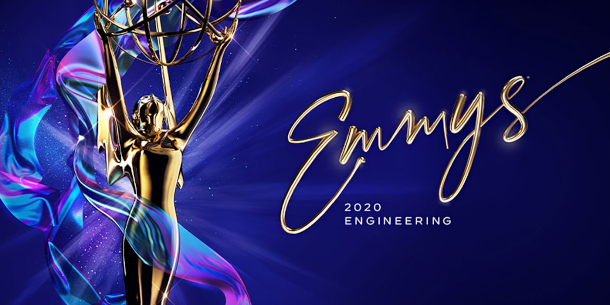Nuke and Unreal Engine win 2020 tech Emmy Awards

Four of the original and current developers of Nuke, Foundry’s VFX-industry-standard compositing application, are among the winners of this year’s Engineering Emmy Awards.
The tech equivalent of the Primetime Emmys, the awards are intended to recognise technologies “so innovative in nature that they materially affect the production … of television”.
Other software due to be recognised at the 72nd Engineering Emmy Awards, which take place on 29 October 2020, include Unreal Engine and RE:Vision Effects‘ optical-flow-based post-production tools.
Nuke’s creators win tech Emmy Awards to add to their tech Oscars
For Bill Spitzak and Jonathan Egstad – part of the team at Digital Domain that originally developed Nuke – and Jerry Huxtable, Foundry’s Nuke software architect, this will be their second major award win.
In 2018, the trio all won Academy plaques at the Scientific and Technical Academy Awards: the tech equivalent of the Oscars.
They are joined this time round by Peter Crossley, Foundry’s current Nuke engineering manager, who has been a developer of the software for over a decade.
The software has been used in the making of every winning show in both the Outstanding Drama Series and Outstanding Special Visual Effects categories at the Primetime Emmy Awards for over a decade.
Its official Emmy citation describes Nuke as delivering “film-grade results fast to compositors, lighters and animators who require a robust, production-proven toolset for compositing, VFX editorial and review”.
Awards for RE:Vision Effects’ warping and retiming tools, and for Unreal Engine
Another of this year’s Engineering Emmy Awards goes to RE:Vision Effects for its optical-flow-based plugins for compositing and editorial software, including Nuke itself.
Although RE:Vision Effects current develops 16 separate products, the Emmy citation specifically namechecks ReelSmart Motion Blur, retiming tool Twixtor, and morphing software RE:Flex.
Epic Games also wins an Engineering Emmy for the development of Unreal Engine, cited here for its use on virtual sets and “AR-enriched programming” as well as conventional VFX.
Other winners include Apple and Codex for their work on broadcast-industry-standard codecs, and to Evercast, HP, Sohonet and Teradici, for their work on remote access and collaboration tools.
Source: Jim Thacker/CG Channel

熱門頭條新聞
- The Ministry of Education encourages the inclusion of artificial intelligence education in local and school-based curricula.
- The OpenHarmony 5.0 Release version has been officially released.
- China’s Minidramas Make Big Splash
- DevGAMM Lisbon 2024 celebrates another successful edition with more than 750 attendees from around the world
- Wait What’s That – A VRy Unique Take On A Classic Drawing Game – Out Now For Free On Meta Quest!
- Slow-Motion Collapse: How Nostalgia, Streaming, and Short-Sightedness Undermined Hollywood’s Future
- PBS NOVA / GBH JOINS THE PRODUCTION OF ZED AND ARTE’S PREMIUM DOCUMENTARY THE LOST TOMBS OF NOTRE-DAME
- Biopunk Action Title Sonokuni Launching Early 2025
